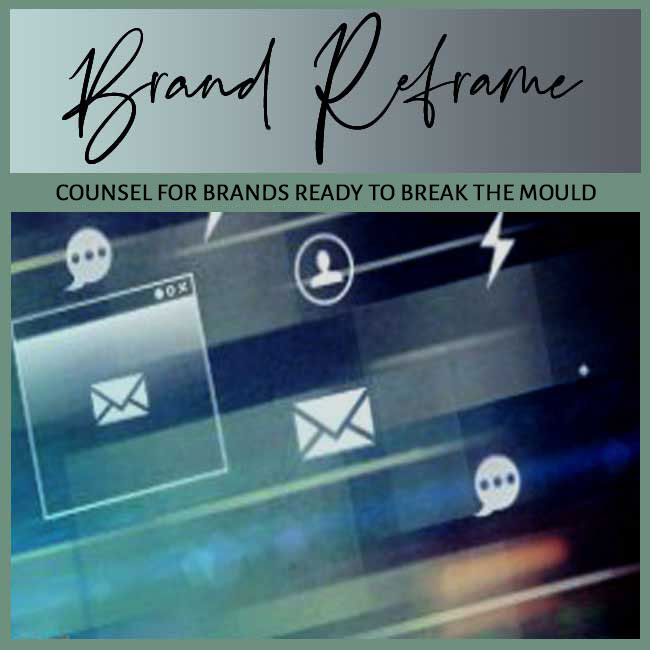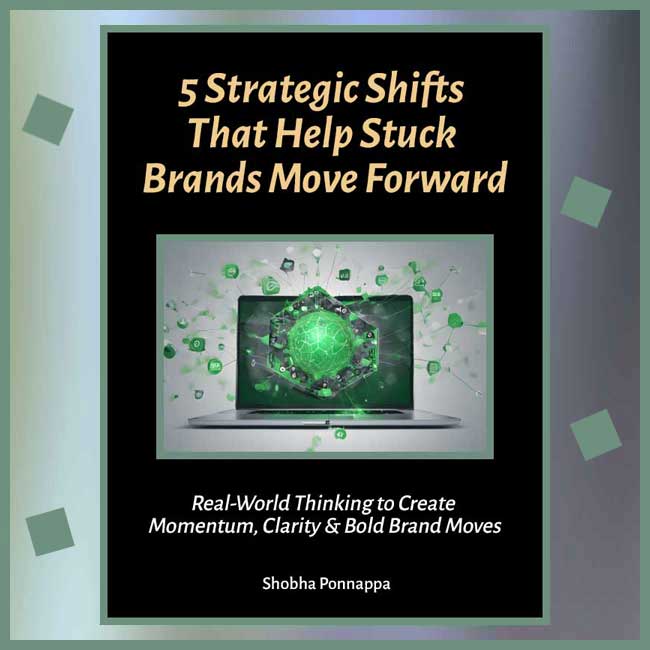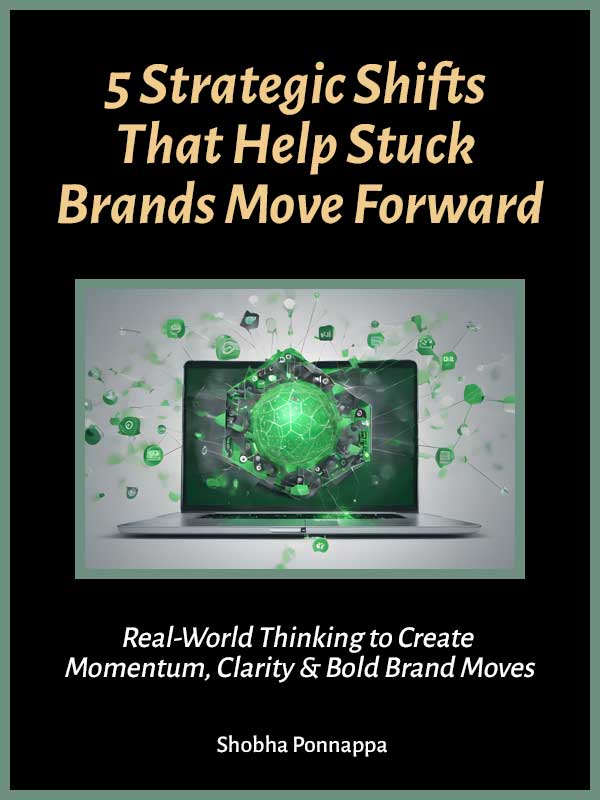
FOCUS: BRAND FOUNDER MISFIT | AUDIENCE: INVESTORS IN SLUGGISH BRANDS
BY: SHOBHA PONNAPPA | BRAND BREAKTHROUGH STRATEGIST | 45 YEARS | 125+ CLIENTS
I answer 6 tough questions about why founders often build for the applause of peers instead of the loyalty of paying customers.
I often see founders fall into the trap of chasing industry applause instead of market traction. The recognition feels rewarding, LinkedIn likes provide instant validation, and conference panels stroke the ego. Yet, all of this rarely translates into paying customers. The brand may seem vibrant, but its financials remain flat.
Many founders have identity tied to peer approval, making validation within their professional network feel essential. They view recognition from colleagues as proof of credibility, even if customers are unconvinced. It feels safer to win over peers who understand the jargon than to wrestle with sceptical buyers. The comfort of peer praise often overrides the discomfort of customer rejection.
Early peer recognition also creates a dangerous illusion of momentum. Awards, retweets, and industry mentions simulate progress, while sales pipelines stay empty. Peers admire ambition but do not purchase it. Without customer adoption, the energy spent on peer recognition becomes a hollow investment.
The clearest signal is when customer growth stalls despite growing peer exposure. Founders are invited to panels, quoted in media, and celebrated online, but contracts fail to materialise. Marketing materials reflect industry jargon instead of buyer priorities. These disconnects suggest the founder is building a reputation with peers, not relationships with customers.
Another sign appears in product decisions. Features are added because colleagues admire their novelty, not because customers demanded them. When feedback loops prioritise peer validation over user needs, the product drifts away from the market. The brand ends up celebrated in theory but ignored in practice.
A peer-centred strategy inevitably erodes investor patience. Revenue stagnates, morale weakens, and the company plateaus. Growth strategies built on visibility alone cannot replace the absence of paying customers. The founder may be admired, but admiration does not pay salaries.
Meanwhile, competitors who obsess over solving customer problems accelerate ahead. Market gaps do not wait for founders to recalibrate. Brands admired in professional circles but neglected by buyers fade into irrelevance. The long-term cost is steep and often irreversible.
The remedy is to shift attention from peer echo chambers to customer realities. Founders must immerse themselves in customer contexts: observing work environments, listening to frustrations, and testing offers directly. It is uncomfortable but necessary. True clarity comes from serving buyers, not impressing colleagues.
Tactical approaches include detailed customer journey maps, rigorous persona updates, and structured feedback loops. Every iteration should anchor in client problems, not peer admiration. By doing this, founders trade applause for adoption, the only validation that sustains growth.
Investors and advisors provide a crucial outside-in perspective. They must challenge vanity metrics and demand evidence of real traction. Instead of accepting social buzz as proof of progress, they ask pointed questions: Who bought? How much revenue closed? How many renewals secured? These force founders to focus on tangible adoption.
Advisors can also embed accountability structures. They measure progress through customer retention, referrals, and conversions, not speaking slots. By reorienting benchmarks around paying customers, they help founders redirect energy. This discipline often becomes the inflection point for recovery.
The outcome is a brand that is admired but irrelevant. Visibility remains high, but revenue stays low. Investors withdraw, employees disengage, and market opportunities vanish. Peers may continue to applaud, but the business quietly declines. This slow erosion is harder to reverse than an outright failure.
By the time the founder recognises the mistake, competitors may have seized the space. Correcting late requires disproportionate effort and resources. That is why this misfit must be addressed early, while the gap between perception and adoption is still bridgeable.
If these questions sound familiar, your brand may not be broken … but it is stuck. The danger lies in mistaking admiration for traction. The positive news? One strategic pivot towards customer-centred clarity can convert applause into adoption. That single shift creates momentum again.
If you’re brand owner or manager seeking stronger brand performance, this FAQ Insight Post I wrote could interest you: “FAQs: When Your PR Wins Headlines but Fails to Shift Perception.“
And if you’re a solo expert looking to sharpen traction, this FAQ Insight Post I worked on may resonate: “FAQs: When the Brand’s Language Isn’t Clear to the Market.“

"One BIG IDEA can turn brand stagnation into unstoppable movement. Spots are limited each week ... book your breakthrough session now."
Shobha Ponnappa
More Breakthrough Ideas … Case Studies & FAQs … from the Brand Founder Misfit Category
Case Studies
FAQ Insights
I Bring You:
Smart insights, real-world frameworks, and idea-driven clarity – designed to help brands move.
Get my fortnightly Brand Reframe newsletter. Smart insights, distilled thinking, and focused momentum to help your brand lead.

Get my free case studies guide. Practical ideas, bold shifts, and clever transformations to propel your brand forward.

Just fill in the form to join. Get my newsletter and the guide shown alongside, all with several game-changing tips.

Just fill in this form and get this awesome guide via email. Plus … each fortnight you’ll receive my Brand Reframe Newsletter that brings you smart insights, distilled thinking, and focused brand momentum.